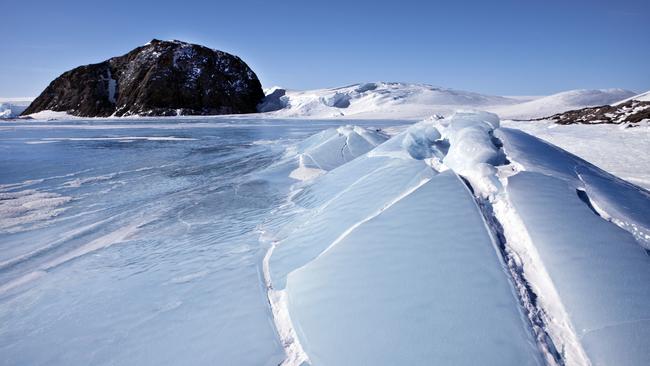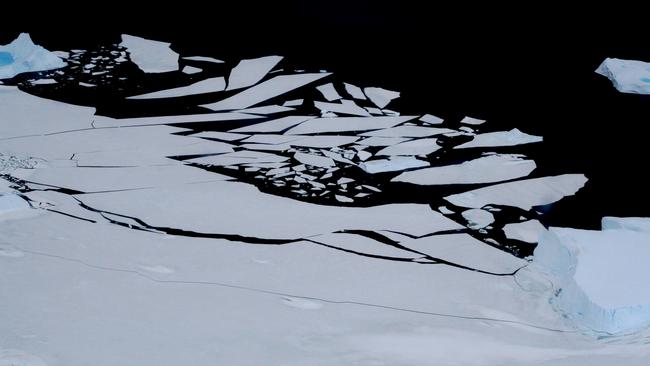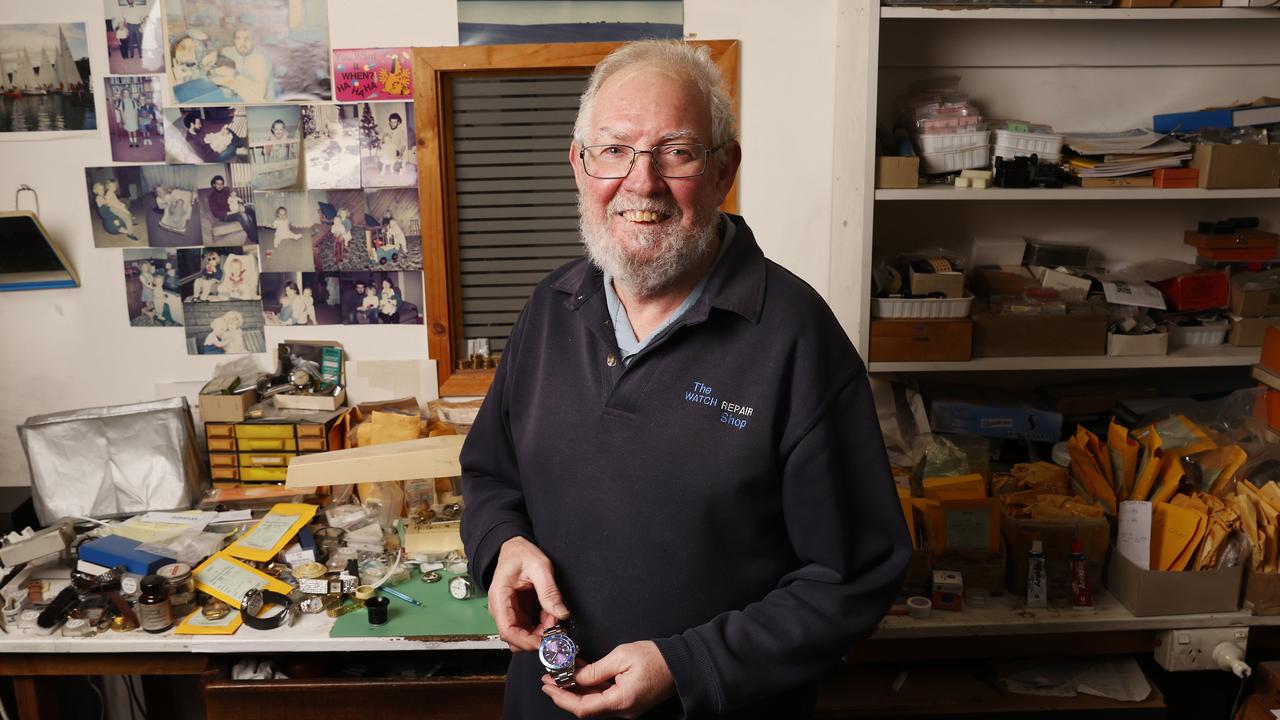Leading University of Tasmania scientist awarded nearly $1m grant to research Antarctic ice
A leading University of Tasmania scientist has been awarded a prestigious grant to research Antarctic fast ice and develop new mapping and climate models.

Tasmania
Don't miss out on the headlines from Tasmania. Followed categories will be added to My News.
A leading Tasmanian scientist has won nearly $1m to research Antarctic landfast ice and its climate impacts over the next four years.
University of Tasmania scientist Dr Alex Fraser has spent his career with the Australian Antarctic Program Partnership researching landfast ice, which is seawater attached to Antarctic coastline or grounded icebergs.
Antarctic landfast ice is a crucial sea ice for Earth’s climate. Despite its importance, research into the topic is spatially limited.
Since being awarded an Australian Research Council Future Fellowship, Dr Fraser can now research further the role landfast ice has in the global climate system.
“Landfast ice is hugely important for global climate and Southern Ocean ecosystems but its extent plummeted significantly last year,” he said.

Dr Fraser’s previous research identified landfast ice is likely to reduce by the end of this century, including in season length, thickness and extent.
He analysed data which revealed how quickly landfast ice can react to environmental change.
While Dr Fraser has spent his career studying the area, projections are still highly uncertain because landfast ice isn’t represented in global climate models.
The grant will allow Dr Fraser research and develop new mapping techniques and include landfast ice in climate models for the first time.
“This ARC Future Fellowship is extremely timely because it will enable large-scale, high resolution, automated mapping of the extent and thickness of landfast ice,” he said.

“In turn, this will enable us to incorporate landfast ice in Australia’s new ice-ocean Earth system model for the first time, which will allow assessment of its impacts on global ocean circulation and ice shelf melt.”
The Australian Research Council received more than 500 applications for Future Fellowships, only approving 100 of them.
The University of Tasmania received a grant of $966,706 for landfast ice research which will also support two PhDs and three Honours projects.
University of Tasmania Deputy Vice-Chancellor Professor Anthony Koutoulis congratulated Dr Fraser.
“It’s extremely gratifying to see his efforts rewarded through the prestigious ARC Future Fellowship scheme,” he said.
“Dr Fraser is an outstanding mid-career scientist with a proven track record for world-leading Antarctic and Southern Ocean research.
“This grant will allow Dr Fraser and the University to continue growing crucial research that addresses the big science questions involving sea ice around Antarctica, at a time when major changes appear to be happening in the Southern Ocean with potential knock-on effects globally.”
tia.ewen@news.com.au




